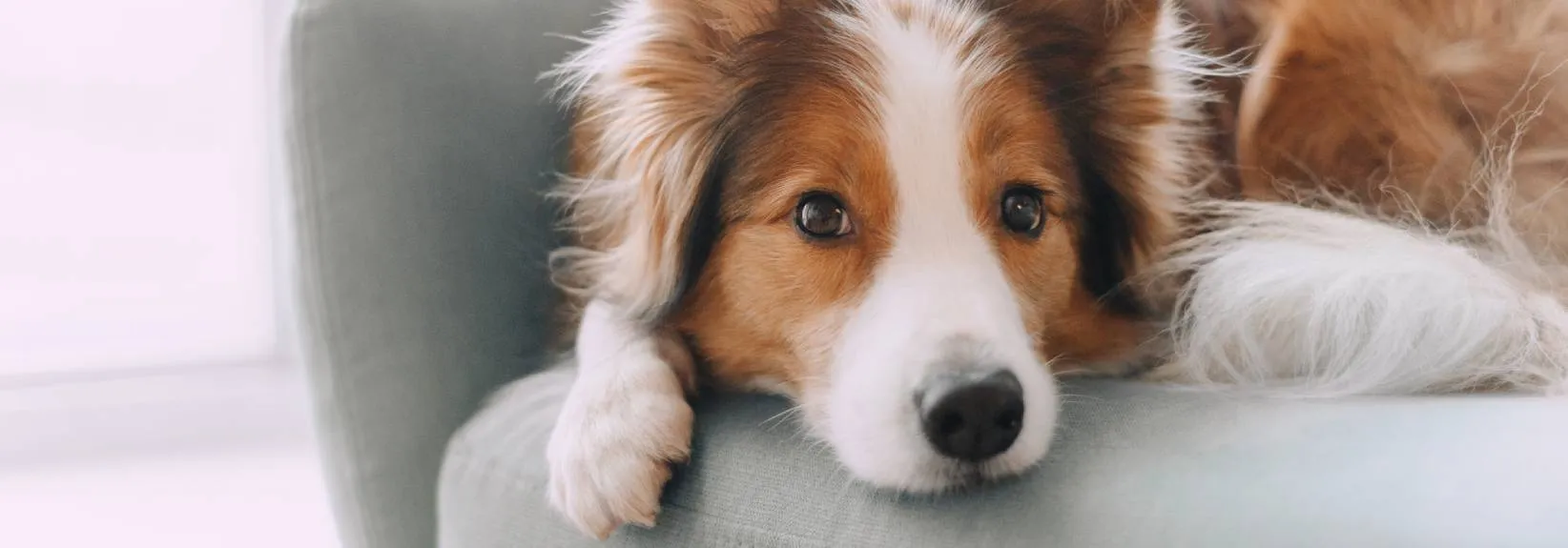What Can Animal Hair Do to My AC Filter?
Pets are an important part of many people’s lives. You probably consider your dog or cat a beloved family member and want to have them around for many years, pet hair can adversely affect your air conditioning system. With proper maintenance, you can ensure adequate airflow and protect the cooling equipment from harm.
How Does an AC Filter Work, and Why is It So Important?
A filter is an important part of any forced-air HVAC system. It captures airborne particles, such as dust, pollen and pet hair, preventing these contaminants from circulating in your home. AC filters come in many different versions, including fiberglass, pleated and electrostatic. A filter’s effectiveness depends on its minimum efficiency reporting value (MERV), which ranges from 1 to 20, with higher ratings indicating better filtration.
The primary purpose of an AC filter is to protect the evaporator coil, blower motor and other cooling system components from dirt and debris that could cause damage. An efficient enough filter also improves indoor air quality by reducing particulates in the air, which can cause allergies, asthma attacks and other respiratory issues in sensitive individuals.
How Does Pet Hair Affect Your HVAC System and Filter?
When pets shed, their hair becomes airborne and is drawn into the HVAC system through the return air ducts. Without a filter installed, pet hair can build up on the evaporator coil, blower motor, fan blades and other components, reducing their efficiency and life span. Hair can also mix with condensation formed during air conditioning, creating a breeding ground for mold and bacteria that can generate foul odors and lower indoor air quality.
Even with a filter in place, pet hair isn’t harmless. When return airflow draws it toward the HVAC system, the filter does its job by trapping the hair and preventing it from landing on delicate cooling components. However, this clogs the filter more quickly than usual, decreasing airflow and increasing strain on the HVAC system. Without intervention, you may experience higher energy bills and more frequent breakdowns.
What About Animal Dander?
Pet dander, which consists of microscopic skin flakes and saliva particles, is a common allergen that causes respiratory problems in people with allergies or asthma. You need a filter with a high MERV rating to effectively capture and remove dander, which is much smaller than pet hair.
How to Care for Your AC System and Filter with Pets
Maintaining an efficient, properly functioning air conditioner is certainly possible, even with pets living in your home. Here’s how:
- Change the filter regularly: Depending on the type of filter and how many pets you have, you may need a new filter every 30 to 90 days. Check it every month and replace it when it starts to appear clogged.
- Clean your air vents and ductwork: Pet hair can accumulate on air registers and grilles, reducing airflow. Clean these with the brush attachment on your vacuum cleaner as often as needed. Then, hire a professional to remove built-up pet hair, dander and dust inside your ductwork every few years.
- Groom your pets: Regular brushing and bathing reduces the hair and dander your pets generate. Brush your pets outside when possible and sweep the area afterward to prevent the hair from getting tracked inside.
- Consistently vacuum and dust: Not all pet hair ends up in the HVAC system. A lot of it settles on surfaces around the house. Keep up a regular cleaning routine that includes vacuuming, sweeping, dusting and laundering your pet’s bedding.
- Keep the area around the outdoor unit clear: Central air conditioners feature an outdoor unit mounted to a concrete slab outside your home. Keep the area around this unit free of debris, including pet hair, grass clippings, dead leaves, and other objects. This ensures effective heat transfer for more efficient operation.
- Schedule regular maintenance: An HVAC technician should inspect and maintain your cooling system once a year, preferably in the spring. This professional can identify and fix small issues, clean internal components and offer tips to keep your cooling system running efficiently with pets.
Contact for Indoor Air Quality Services
If you’re concerned about how your pets are affecting your HVAC system and indoor air quality, turn to for expert advice and solutions. We offer a range of indoor air quality products to help keep pet hair and dander at bay, including high-end air filtration, whole-house ventilation and air duct cleaning. We can also maintain your HVAC system for maximum performance and efficiency. Rest assured that everything we do is backed by a one-year 100% satisfaction guarantee! To request indoor air quality services in North America, please contact today.
